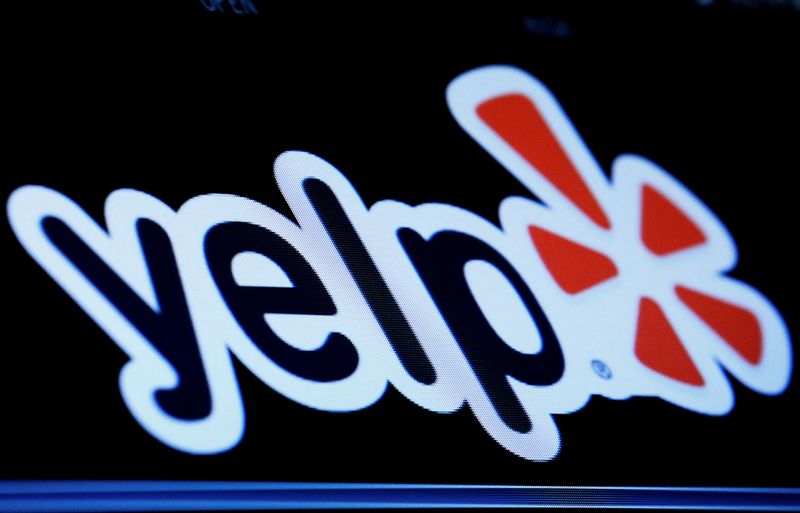By Jonathan Stempel
(Reuters) -Yelp may file a lawsuit accusing a reputation management company of fraudulently advertising its ability to remove “bad” reviews from its business review website.
U.S. District Judge William Alsup in San Francisco said in a decision late Thursday evening Yelp (NYSE:) may pursue trademark infringement and unfair competition claims against ReviewVio, which operates under the name Dandy.
Yelp said ReviewVio’s ads, which include the Yelp logo, damaged its reputation by suggesting that businesses could pay for artificially inflated star ratings.
This would undermine honest businesses that are unwilling to pay to remove negative reviews, and undermine the usefulness of Yelp’s website to consumers.
Yelp also said it lost advertising revenue from companies that paid for “review gating,” which the company prohibits, or mistakenly believed Yelp endorsed the practice.
The Federal Trade Commission encourages companies not to ask only for positive reviews or to discourage negative reviews.
In a 27-page decision, Alsup said Yelp sufficiently alleged that ReviewVio’s conduct could cause confusion about the relationship between the companies.
“The allegations make it plausible that ReviewVio’s alleged marketing influences companies’ choice to purchase Yelp’s advertising services, ReviewVio’s review management services, or no services at all to promote themselves – in the belief that the game has been rigged,” wrote he.
Alsup said Yelp can seek damages for ReviewVio’s alleged misrepresentations to businesses, but not to consumers.
In filing for dismissal, ReviewVio said there was no evidence the company “participated in any form of immoral or unethical conduct.”
Jenifer Wallis, an attorney for ReviewVio, said the exclusion of consumer harm “significantly limits Yelp’s damages claims. ReviewVio maintains that Yelp’s lawsuit is without merit and will continue to aggressively litigate this case.”
James Daire, associate legal director at Yelp, said the San Francisco-based company was pleased with the decision.

“The court has recognized the harm caused by practices such as review gating, which deceptively cultivate positive reviews on public platforms and divert criticism to private channels,” he said.
The case concerns Yelp Inc v ReviewVio Inc, US District Court, Northern District of California, No. 23-06508.


